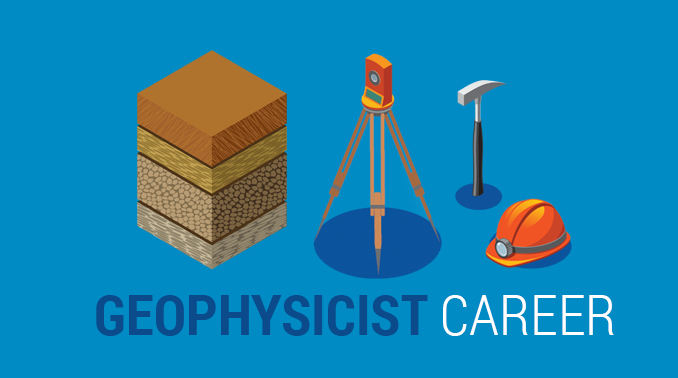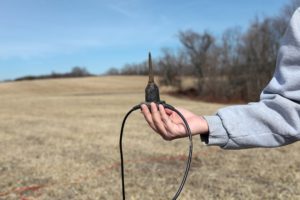All Categories
Featured
Table of Contents
Hydrographic And Geophysical Surveys in Tapping Western Australia 2023
This work is progressively contracted out, so consultancies offer another source of employment. Consultancy companies differ in size, from very small business to big multinationals. Some consultancies are rather specialised in using particular geophysical methods or operating in particular areas, while others provide a more varied range of services to their consumers.
The extraction of gas from garbage dump sites is another location of work and this might grow in the future. Exploration business may undertake work for construction companies, public utility, mining business and environmental companies, so geophysicists might be utilized in any of these settings. Other companies consist of: geological surveysgovernment bodies and agenciesuniversities and research institutes.


Jobs might be listed in the oil and gas sector press. Recruitment is impacted by oil rate fluctuations and the level of competition for positions varies depending upon this. Careers Days, which cover the full variety of geoscience careers and are typically gone to by a number of crucial industry employers, are run by The Geological Society.
Glad You Asked: What Are Seismic Surveys? in Karrinyup Western Australia 2023
A few of the big oil and gas business use a complete two-year structured training program throughout the breadth of geophysics, including the chance to experience work in different groups before specialising in one location. Your training might include deal with: existing wellsmagnetic and gravitational potential field information analysisresearchrock analysis. It's more typical for your preliminary training to be provided on the job.

There may be a probationary period during which you work alongside an experienced coworker. Competency-based appraisals occur regularly in a lot of firms. In smaller sized companies, and for scholastic posts, there is unlikely to be any official training - you'll be anticipated to begin work straightaway and get skills as you go along.
If you work for a smaller sized company, you might find that you need to take responsibility for arranging and funding your own development and training. If you have a geology degree, membership of The Geological Society can be useful for networking and for keeping up to date with the market.
Geology And Geophysics - Careers And Employment in Clarkson Australia 2022
You might likewise discover it helpful to sign up with the PESGB (The Petroleum Exploration Society of Great Britain, which has a geophysics special interest group. After a probationary duration, and when you have actually gotten some experience, you could advance to senior geophysicist, then team leader and after that into a senior role in management.
The ease of movement in between functions depends upon the company structure. Research study at Masters or Ph, D level in a subject related to geophysics or geosciences may assist with your career advancement and development. The work market within the oil and gas industry is extremely based on rate and this may impact your chances for profession development.
Not all jobs are dependent on the oil and gas markets. For experienced geophysicists, freelance consultancy provides an excellent route for profession advancement. You can likewise specialise in a particular area of geophysics. As a geophysicist, you're likely to have several tasks throughout your working life. Worldwide movement is crucial for handling peaks and troughs in different nations at different times.
Geophysical Methods in Innaloo Oz 2022
From geophysics, it's possible to concentrate on seismology (finishing additional training to become a seismic interpreter) or to move into associated areas such as engineering geology or hazard prediction.
Choosing what to study in college is a difficult option. Even if you know that your field of interest depends on science, what program of research study is right for you? If you make the decision to significant in physical and life sciences and pursue a career as a geophysicist, you're getting ready for an interesting and profitable profession.
The first action to achieving your goal of ending up being a geophysicist is earning a degree. Even for entry-level positions in the field of geoscience, you'll require a bachelor's degree (a geophysicist college degree) from an accredited college or university. Some research study positions need prospects to hold master's degrees or even Ph.
Airborne Geophysical Survey in Beckenham Western Australia 2021
Doctoral degrees are specifically important if you plan to teach at a four-year organization. Geophysicists apply physics concepts and strategies to study the gravitational, magnetic, and electric fields of the earth. This enhances researchers' knowledge of both the planet's interior core and its surface. Geophysicists need to have the ability to: examine rocks, photos, and other pieces of information perform research study both in the field and in labs develop maps and charts of their findings write reports To achieve all this, trainees require a specialized education for geophysicist careers.
As specified above, you'll require a bachelor's degree in geoscience or a related discipline, such as a physical science or a life sciences, to land an entry-level job. But trainees can likewise prepare by majoring in subjects like: Biology Chemistry Computer technology Engineering Mathematics Physics The above geophysicist majors use a more generalized approach to a single scientific discipline, but most programs require students to take several geology course.
Table of Contents
Latest Posts
Geophysical Survey In Archaeology in Samson WA 2023
Geology Careers: Degree Requirements, Cost & Salary in Subiaco Western Australia 2022
Geophysical Surveys: Definition & Methods in Armadale Western Australia 2022
More
Latest Posts
Geophysical Survey In Archaeology in Samson WA 2023
Geology Careers: Degree Requirements, Cost & Salary in Subiaco Western Australia 2022
Geophysical Surveys: Definition & Methods in Armadale Western Australia 2022